Are you participating in a cannabis beverage association?
This post originally appeared on Ben's LinkedIn Newsletter, Infused Insights. You can read and leave comments here.
3 min read
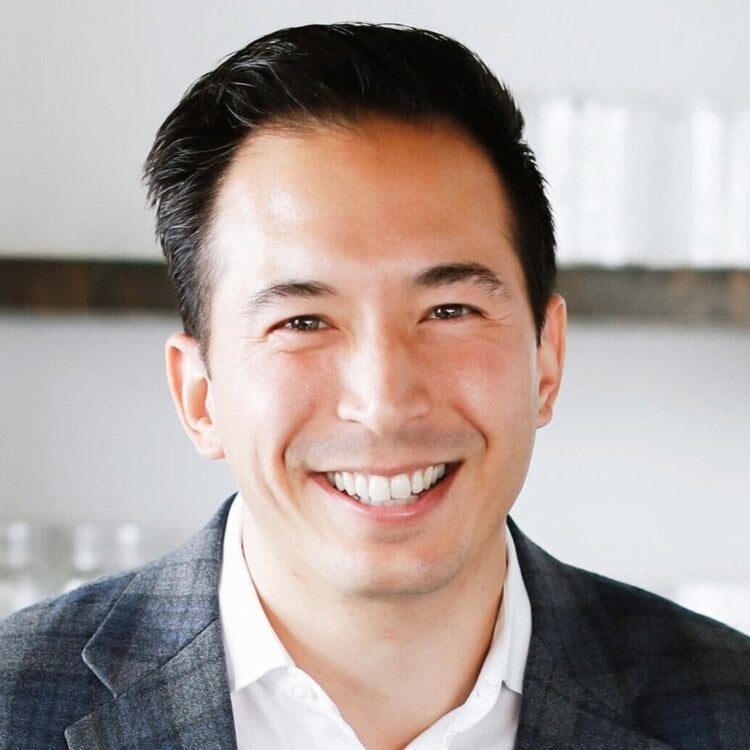 Ben Larson
:
7/2/24 5:32 PM
Ben Larson
:
7/2/24 5:32 PM
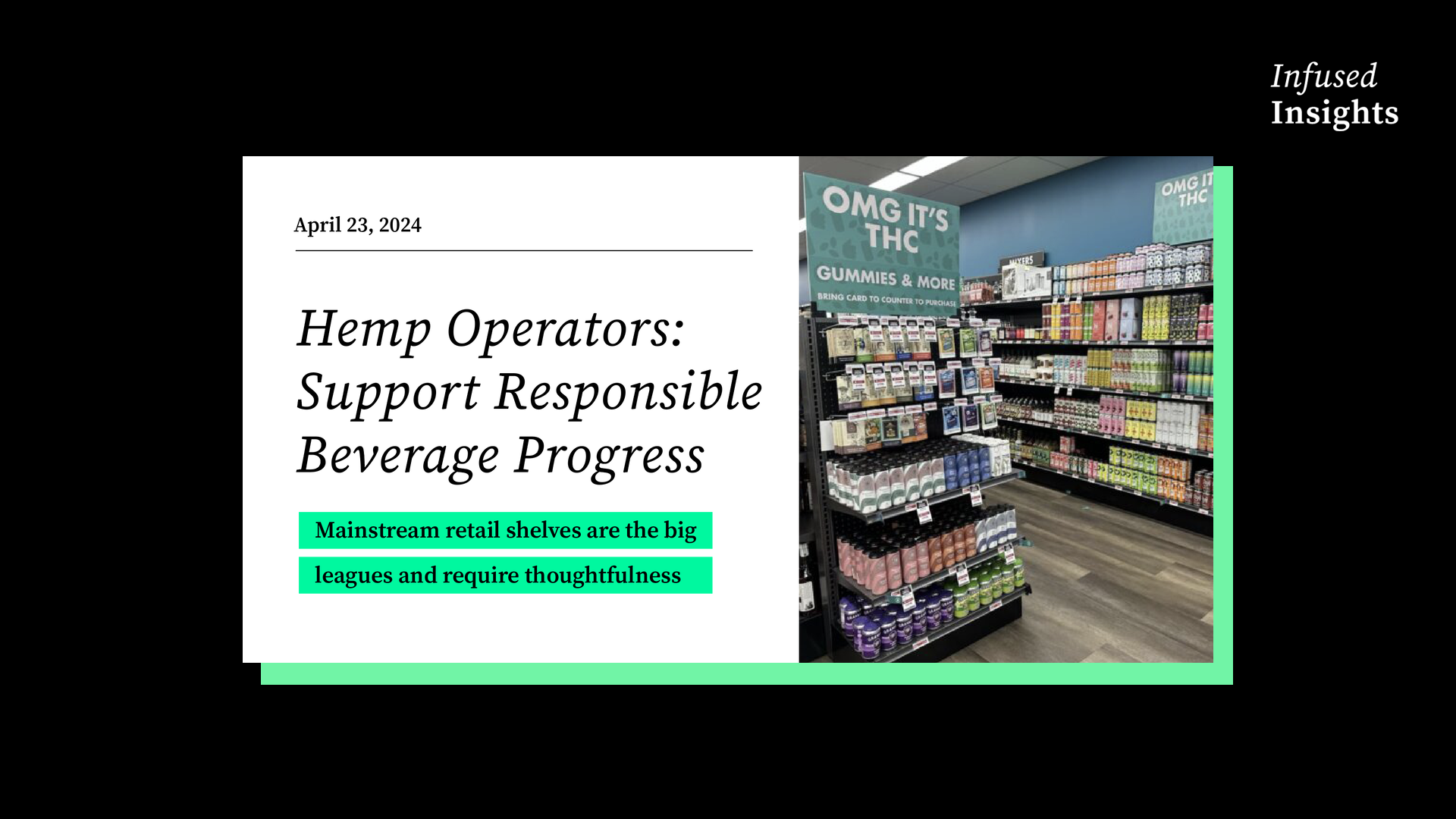
This post originally appeared on Ben's LinkedIn Newsletter, Infused Insights. You can read and leave comments here.
The hemp industry is as vast and varied as it is fragmented. However, it's undeniable that it has been a catalyst for innovation, risk-taking, and boundary-pushing. This is particularly true for operators who, leveraging the nuances of the 2018 Farm Bill, have blurred the lines between hemp and its cannabis counterparts. While controversial even within the hemp community, these boundary-pushers have unlocked an unprecedented opportunity with hemp-derived THC beverages making a significant mark in mainstream retail for the first time, now available in outlets like Total Wine & More, DoorDash, Spec's, and various music and sporting venues.
This moment of immense opportunity and significance warrants a pause and careful reflection.
The mainstream beverage sector's endorsement of this emerging category is clear. Yet, it is nascent and fragile, and further advancements—whether in product forms, reduced age restrictions, or increased dosages—pose challenges and evoke hesitation from a multitude of parties, particularly among new consumers and retailers, and regulators aiming to manage existing cannabis frameworks.
In my discussions with various regulators, legislators, and industry organizations, there is interest and support for low-dose hemp products within the mainstream, particularly in the beverage category. However, a thoughtful and measured approach is essential.
This is very market-specific and requires consideration of the existing marketplace. It's also probably especially amplified while I sit here in California with a very entrenched and embattled regulated cannabis market.
I recognize the dilemma facing hemp operators whose product portfolios extend beyond beverages, rooted in the belief that all hemp-derivatives should be freely sold. While I won’t challenge this belief directly, I argue that aggressively promoting this narrative in the current beverage-focused climate of the newly cracked mainstream marketplace may hinder the category's progress.
The introduction and success of low-dose THC beverages should not be seen as an endpoint but as a stepping stone towards broader acceptance. Patience, quality, and consistency are crucial in building trust and normalizing these products. Rushing to expand the market with aggressive tactics risks not only this trust but also potential regulatory backlash.
Regulation and Self-Awareness
Moving forward in the mainstream marketplace demands a commitment to regulation, adherence to strict consumer safety standards, and a focus on product quality and education. As noted by experts like my friend, Pamela Epstein, emphasis should be placed on ingredient purity, safe and consistent manufacturing practices, and reliable product potency and shelf life.

Credit: Pamela Epstein, Chief Legal & Regulatory Officer at Terpene Belt Farms
I would like to commend the beverage-focused enterprises, particularly those affiliated with the Hemp Beverage Alliance and the Cannabis Beverage Association, for their early dedication to the principles of Purity, Potency, and Process. Many, but admittedly not all, of the companies associated with these organization are already embracing this strategic framework or are collaborating with ingredient providers who are instrumental in establishing these tenets as a cornerstone of their operational processes.
Additionally, it's vital that retailers and their staff understand the effects of THC and that it’s the same whether it's derived from hemp or cannabis (not all of them do). Education on how to discuss these effects is critical — kudos to the Education Council of the Cannabis Beverage Association who is currently developing educational materials to address this need. With widespread misinformation, it's time for a commitment to intellectual honesty to build trust, transparency, and consistency in the mainstream marketplace.
Blurring The Dividing Lines
With diversity and fragmentation comes the challenge of aligning voices and strategies. While this article may not dramatically shift broader strategies within the large hemp operators with broad product portfolios, it aims to foster understanding of the fragile nature of the mainstream retail opportunity at hand. This critical incremental step forward requires a beverage-first mindset and recommendations to ensure consumer safety and retailer trust.
As we look to the future, it's essential to recognize that intoxicating hemp products are, fundamentally, cannabis.

Not to go all Pollyanna on everyone, but my dream is this: "One plant. One voice."
The time has come to put aside intra-industry disputes, stop dredging-up pejorative terms once used to stigmatize the plant and imprison its consumers, and embrace intellectual honesty and collaboration, and better align our strategies for broader legalization. As I said before, mainstream retail shelves are the big leagues and demand such honesty. The beverage segment, with its unique positioning and potential for widespread acceptance, is an ideal platform for fostering such unity and is already represented by brands and operators from both sides of the plant.
< Licensed Cannabis Operators: Let Low Dose Beverages Go
Cannabis Advocacy Groups: Beverage is a Blessing in Disguise >
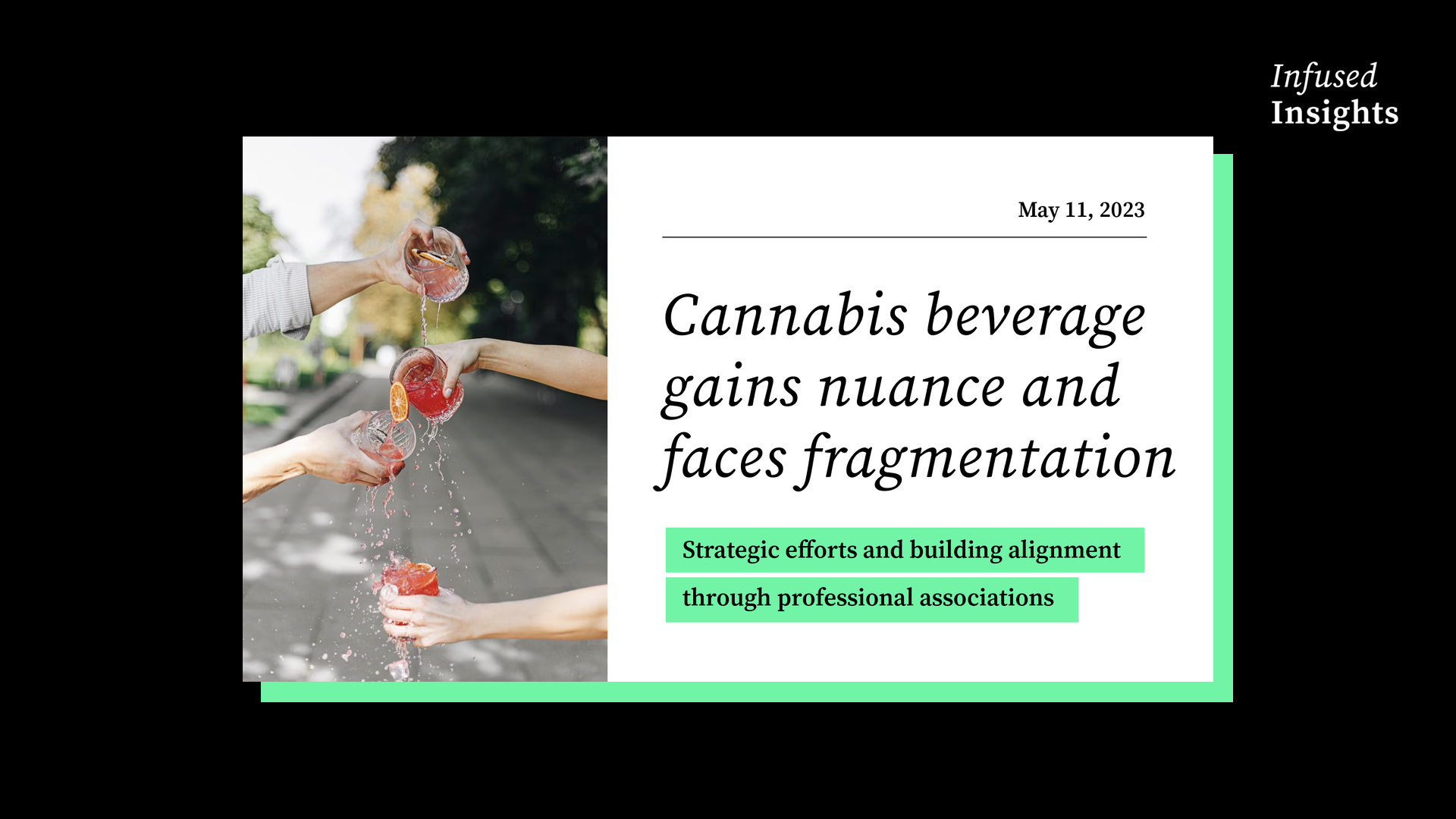
This post originally appeared on Ben's LinkedIn Newsletter, Infused Insights. You can read and leave comments here.
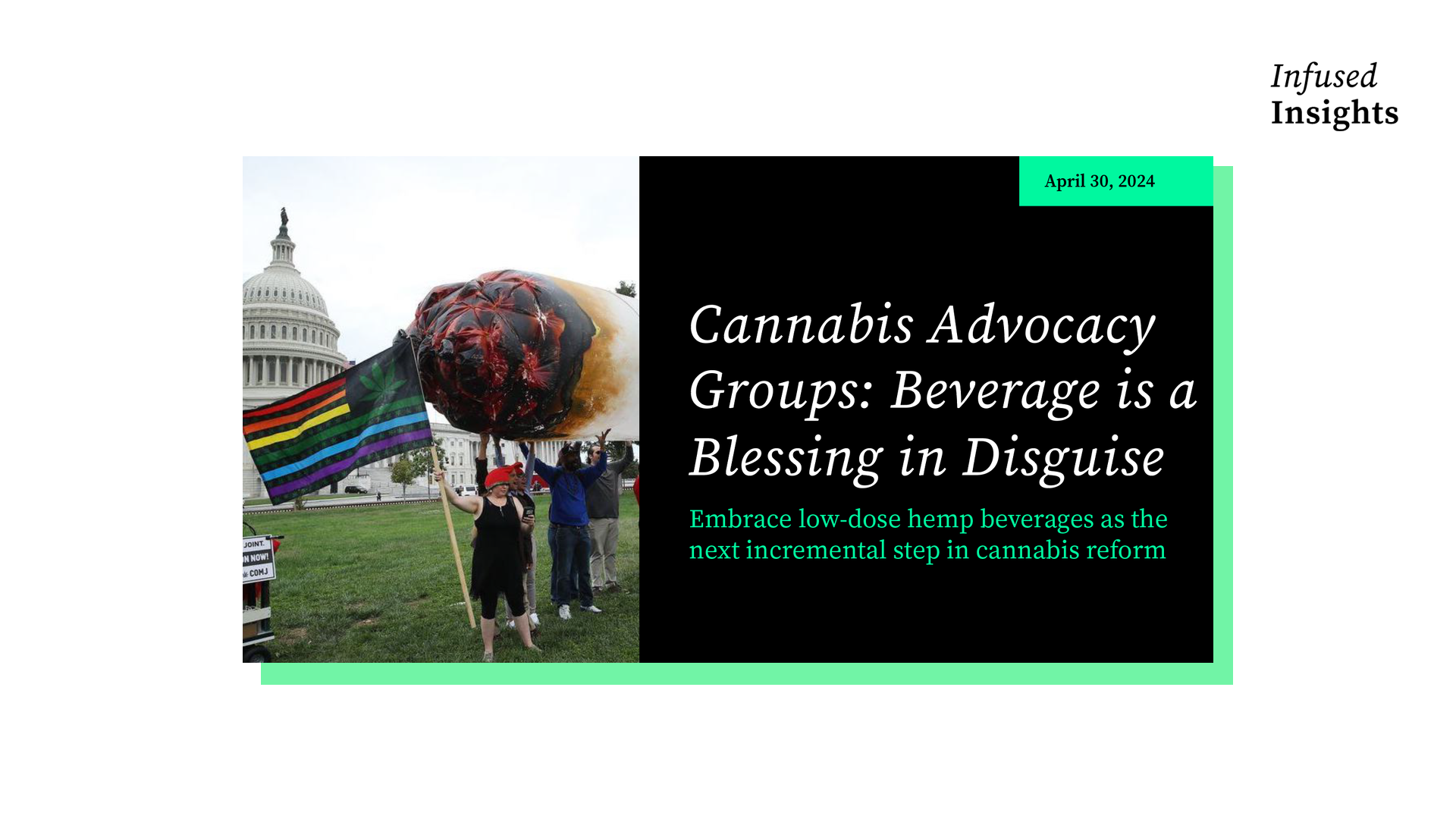
1 min read
This post originally appeared on Ben's LinkedIn Newsletter, Infused Insights. You can read and leave comments here. {% video_player "embed_player"...
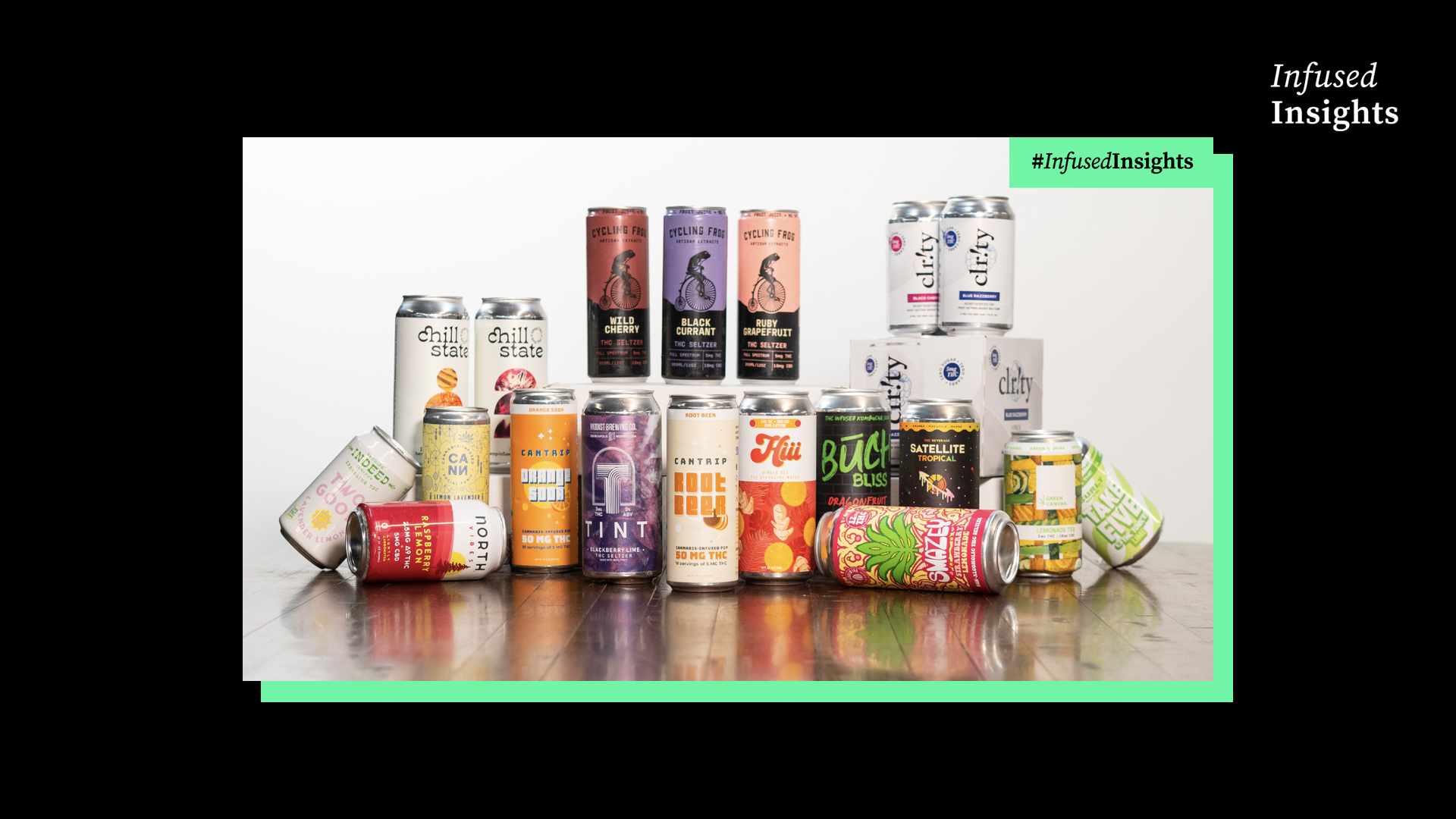
This post originally appeared on Ben's LinkedIn Newsletter, Infused Insights. You can read and leave comments here.